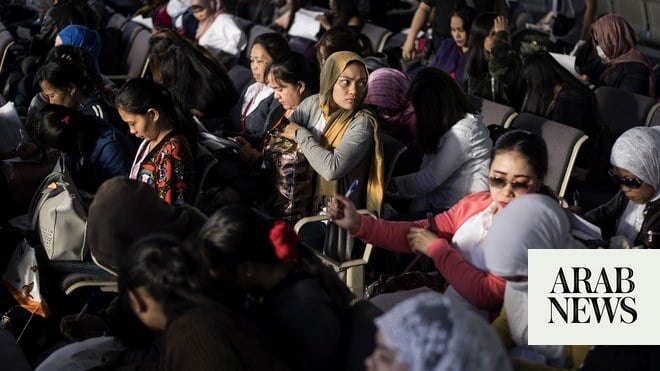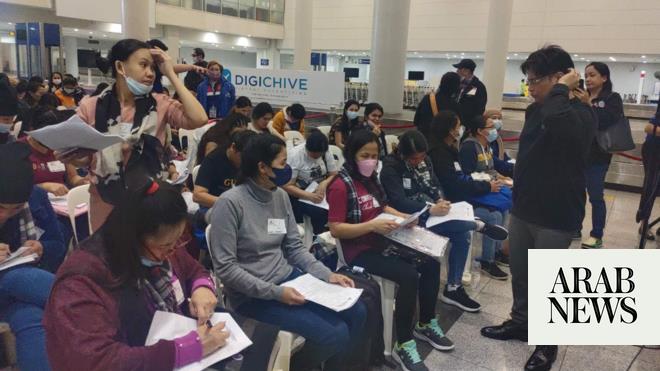
In 2018 and 2020, Manila banned worker deployment to the Gulf state after murder cases
Philippine president says government will review bilateral labor agreement with Kuwait
MANILA: The Philippines is tightening rules for the deployment of workers to Kuwait after the brutal murder of a migrant Filipino worker last month sent shockwaves across the Southeast Asian nation.
The charred body of the 35-year-old maid, Jullebee Ranara, was found abandoned in a desert in late January and repatriated to the Philippines last week. Kuwaiti police have since arrested and charged the 17-year-old son of her employer over the killing.
Ranara was one of more than 268,000 overseas Filipino workers living in Kuwait. Most are women employed as domestic helpers.
After Ranara’s murder, the Philippine Migrant Workers Office in Kuwait suspended the accreditation of new recruitment agencies in the Gulf country, while President Ferdinand Marcos Jr. announced on Monday that the Philippine government is scheduling meetings with Kuwaiti authorities to review the bilateral labor agreement to “see if there are any weaknesses in the agreement that allowed this (murder) to happen” and provide more protection to overseas Filipino workers.
“The Philippine government’s priority is to seek justice for our deceased compatriot,” Undersecretary for Migrant Workers’ Affairs Eduardo Jose De Vega told Arab News on Thursday.
“The Department of Migrant Workers is reviewing the records of the currently accredited agencies and is imposing stricter rules for deployment in the meantime.”
Ranara’s murder is not the first such incident in Kuwait to shock the Philippines, which in 2018 imposed a worker deployment ban to the Gulf country after the killing of Filipino domestic helper Joanna Daniela Demafelis, whose body was found in a freezer in an abandoned apartment.
The ban was partially lifted the same year, after the two countries signed a protection agreement for workers. In May 2019, Filipino maid Constancia Lago Dayag was killed in Kuwait, and a few months later, another employee, Jeanelyn Villavende, was tortured to death by her employer. The Philippines again imposed a worker deployment ban in January 2020, which was lifted when Kuwaiti authorities charged Villavende’s employer with murder and sentenced her to death.
The Philippine government is not considering another ban, despite calls from Filipinos outraged by the recent gruesome killing.
According to migrant work expert Emmanuel Geslani, a ban “may result in more harm than good” by leading to human trafficking.
“Any deployment ban always leads workers to illegal recruitment syndicates enticing overseas Filipino workers (OFWs) eager to find work in the oil-rich country of Kuwait,” he told Arab News.
“OFWs who are victims of human trafficking will be devoid of the protection of the Migrant Workers Office and the labor agreement forged by both countries.”












